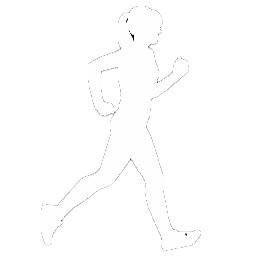Coffee lovers, hoist your cups. Stopping at Starbucks before going out for a long run or bike ride is no longer a no-no, exercise researchers say.
By Jack Cox
Denver Post Staff Writer
Contrary to what many trainers and coaches have maintained over the years, caffeine won’t leave you dehydrated and can actually improve your endurance.
“There may be a temporary diuretic effect, but it seems the body deals with this quite well,” says Lawrence E. Armstrong, a physiologist with the Human Performance Laboratory at the University of Connecticut.
At moderate levels of consumption, Armstrong says, there is little difference in fluid retention between caffeinated beverages and plain water. The notion that there is, he adds, appears to have been based on a 1928 study so limited it involved only three subjects whose responses were monitored for less than four hours apiece.
As for coffee’s impact on performance, dozens of studies conducted over the past three decades indicate that “the effects of caffeine in prolonged, strenuous exercise have been positive in almost all cases,” says Kirk J. Cureton, head of the Department of Exercise Science at the University of Georgia.
While there is great variability depending on the individuals and types of tests used, Cureton says, researchers have found in general that caffeine increases vigor, improves reaction times and staves off exhaustion – at least in doses of up to 200 milligrams, or the quantity contained in two to three average cups of coffee.
Above that level, the effects tend to taper off, and adverse effects such as headaches or “the jitters” begin to appear at levels of 400 mg or above.
One early study, Cureton says, found that competitive cyclists who received just 30 mg of caffeine an hour before starting a two-hour treadmill test could go 15 minutes longer before becoming exhausted than those who took a placebo.
A more recent study, also conducted on cyclists, found that non-caffeine users felt the effects more strongly than regular users, especially when measured six hours after ingestion.
Other research has shown that caffeine has much less effect in high-intensity, short-duration events such as sprints. It also has little or no effect on muscular strength, Cureton adds.
Canadian researcher Lawrence L. Spriet, a professor at the University of Guelph, Ontario, says it’s unclear how caffeine improves endurance.
One common theory is that it spurs the oxidation of fat early in a workout, thus sparing glycogen in the muscles for use later on.
But there is growing evidence, Spriet says, that caffeine works primarily on the central nervous system, blocking the adenosine receptors that trigger a sense of fatigue, and thus tricking the brain into thinking the body is less tired than it really is.
Not all research on caffeine is as positive as these findings, which were outlined during the recent national meeting of the American College of Sports Medicine in Denver.
A study published in the Jan. 17 issue of the Journal of the American College of Cardiology found that the equivalent of two cups of coffee limited the body’s ability to boost blood flow to the heart during exercise – particularly at high altitude.
The 18 participants, all young healthy coffee drinkers, were checked after riding a stationary bike with no caffeine in their systems and again after being given one 200-mg tablet of caffeine apiece.
Their blood-flow readings after caffeine were 22 percent lower at normal air pressure and 39 percent lower in a chamber simulating the thin air at 15,000 feet, a level designed to mimic the way heart disease deprives the heart muscle of sufficient oxygen.
The lead author, Dr. Philipp A. Kaufmann of University Hospital in Zurich, Switzerland, wrote that he would not now recommend that any athlete drink caffeine before sports.
“It may not be as harmless as we thought before,” he wrote, “particularly if you suffer from coronary artery disease or if you are in the mountains.”
Staff writer Jack Cox can be reached at 303-820-1785 or jcox@denverpost.com.
